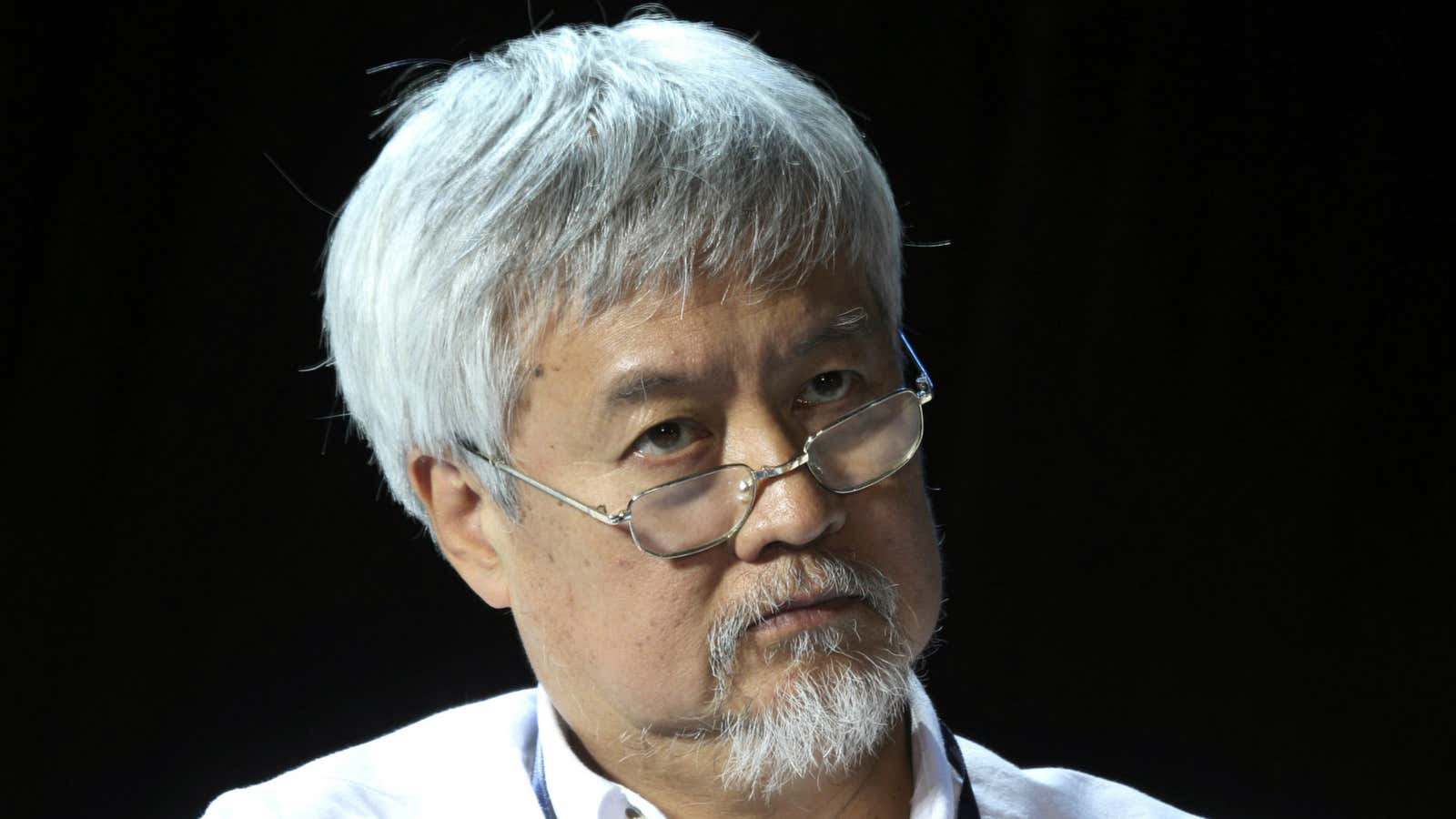It’s been a discordant 2013 for the Chinese internet sector. The valuation of Tencent, Asia’s biggest internet company, topped $100 billion on Monday and is closing in on the likes of Facebook; Sina’s stock is up 59% on the year. But the winning streak is taking place amid an intensifying internet crackdown by Chinese authorities, which culminated with a humiliating public apology by blogger and investor Charles Xue this weekend.
Xue was arrested in late August for allegedly soliciting prostitutes, much to the derision of government critics who smelled a set-up. That suspicion was only strengthened when Xue’s shackled on-air “confession” only addressed his acts of online hubris and spreading unverified information as a prominent microblogger on Sina Weibo.
Observers of China’s tech scene were quick to suggest the true moral of the story. ”Xue’s arrest and subsequent very-public confession for ‘crimes’ that had nothing to do with his arrest is meant to send a message to the microblogging public in China: shut up,” wrote C. Custer, founder and editor of ChinaGeeks.org, in a column for Tech In Asia.
The government crackdown on “false rumors”—which in practice often means information critical of the government or powerful business figures—has also taken aim at Tencent’s blockbuster WeChat service, also known as Weixin, and its 236 million active users. Police in Zhejiang province warned that sharing “rumors and false information” with personal contacts using WeChat’s “Moments” feature (similar to the Facebook timeline) is subject to legal penalties.
Regardless of the internet platform being used, new guidelines from the Supreme People’s Court suggest a prison sentence of up to three years if a post that is “defamatory or harms the national interest” is viewed 5,000 times or forwarded 500 times.
Companies like Tencent and Sina are responsible for patrolling their own users to make sure they do not step out of bounds—a difficult and expensive proposition even when the boundaries aren’t getting tighter. Reuters took a fascinating look last week at the censors inside Sina who are responsible for deleting any offensive or political sensitive Weibo messages. They described a “stressful, dead-end job” where censors must sift through 3,000 posts an hour from 54 million daily users after they are pre-screened by Sina’s moderation software.
“The most frequently deleted posts are the political ones, especially those criticizing the government, but Sina grants relatively more room for discussions on democracy and constitutionalism because there are leaders who want to keep the debate going,” one former censor told Reuters. It’s not clear when that interview took place, but the leaders seem much less keen about debate lately.
It may be only a matter of time before the government’s aggressive new stance takes a toll on China’s tech industry, since social media is central to the industry’s strategies and growth prospects. E-commerce firm Alibaba, for example, recently allied itself with Sina and bought an 18% stake in the company as it prepares for a blockbuster IPO.
There are already signs that the government campaign against “rumors” is making services like Sina Weibo less attractive to the influential people who made it a crucial destination for commentary and discussion of current events. Posts from “Big V” users, as those with large followings and verified identities are known, were down 11.2 percent in August, according to a study Weiboresearch did for the South China Morning Post.
The website Offbeat China spoke this week to high-profile Chinese citizens who have requested that Sina revoke their “Big V” status—once a mark of online celebrity, but now more akin to a bullseye. Until users and investors can determine how the Chinese government’s campaign against social media users will play out, that bullseye may be borne by the country’s internet companies as well.




